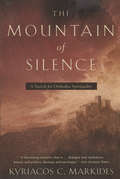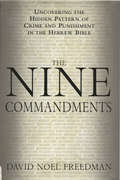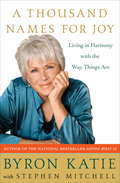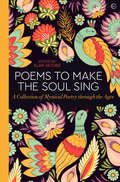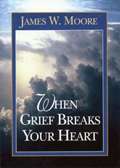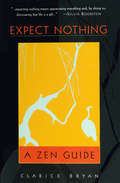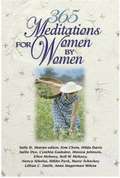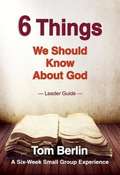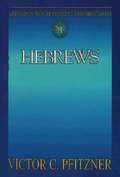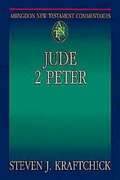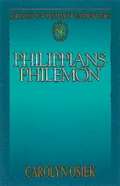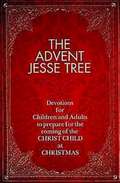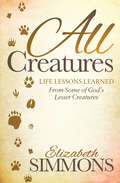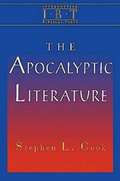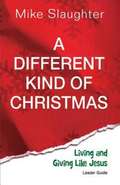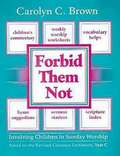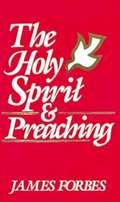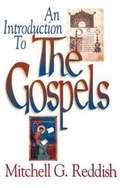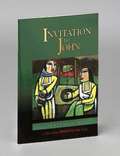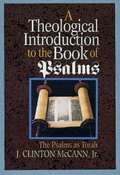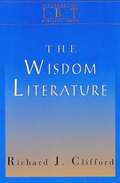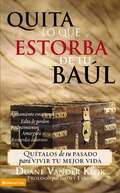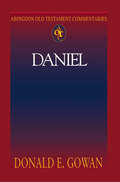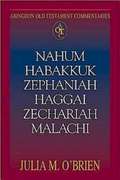- Table View
- List View
The Mountain of Silence
by Kyriacos C. MarkidesAn acclaimed expert in Christian mysticism travels to a monastery high in the Trodos Mountains of Cyprus and offers a fascinating look at the Greek Orthodox approach to spirituality that will appeal to readers of Carlos Castaneda. In an engaging combination of dialogues, reflections, conversations, history, and travel information, Kyriacos C. Markides continues the exploration of a spiritual tradition and practice little known in the West he began in Riding with the Lion. His earlier book took readers to the isolated peninsula of Mount Athos in northern Greece and into the group of ancient monasteries. There, in what might be called a "Christian Tibet," two thousand monks and hermits practice the spiritual arts to attain a oneness with God. In his new book, Markides follows Father Maximos, one of Mount Athos's monks, to the troubled island of Cyprus. As Father Maximos establishes churches, convents, and monasteries in this deeply divided land, Markides is awakened anew to the magnificent spirituality of the Greek Orthodox Church. Images of the land and the people of Cyprus and details of its tragic history enrich the Mountain of Silence. Like the writings of Castaneda, the book brilliantly evokes the confluence of an inner and outer journey. The depth and richness of its spiritual message echo the thoughts and writings of Saint Francis of Assisi and other great saints of the Church as well. The result is a remarkable work-a moving, profoundly human examination of the role and the power of spirituality in a complex and confusing world.
The Nine Commandments
by David Noel Freedman Jeffrey C. Geoghegan Michael M. HomanIn a book certain to be as controversial as Harold Bloom's The Book of J and Elaine Pagels's The Gnostic Gospels, David Noel Freedman delves into the Old Testament and reveals a pattern of defiance of the Covenant with God that inexorably led to the downfall of the nation of Israel, the destruction of the Temple, and the banishment of survivors from the Promised Land. Book by book, from Exodus to Kings, Freedman charts the violation of the first nine Commandments one by one-from the sin of apostasy (the worship of the golden calf, Exodus 32) to murder (the death of a concubine, Judges, 19:25-26) to false testimony (Jezebel's charges against her neighbor, Naboth, I Kings 21). Because covetousness, Freedman shows, lies behind all the crimes committed, each act implicitly breaks the Tenth Commandment as well. In a powerful and persuasive argument, Freedman asserts that this hidden trail of sins betrays the hand of a master editor, who skillfully wove into Israel's history a message to a community in their Babylonian exile that their fate is not the result of God's abandoning them, but a consequence of their abandonment of God. With wit and insight, The Nine Commandments boldly challenges previous scholarship and conventional beliefs. David Noel Freedman has been General Editor and a contributing coauthor of the Anchor Bible series since its inception in 1956. He is a professor in Hebrew Bible at the University of California, San Diego, and lives in La Jolla, California.
A Thousand Names for Joy: Living in Harmony with the Way Things Are
by Byron KatieInspired by the 'Tao Te Ching', this is Byron Katie's inspiring and pragmatic approach to achieving an awakened mind and living more simply and profoundly. Using the template of the 81 chapters of the 'Tao Te Ching' Byron Katie talks about her own experience of life in harmony with the way things are. Katie Herself doesn't know anything about Eastern religion. As she says, she just knows the difference between what hurts and what doesn't. But like Lao-tzu, she speaks with such honesty and truth that it can seem irreverent. Katie has written two books that teach how suffering can be relieved by questioning the thoughts that create it, the thoughts that argue with reality. This questioning takes courage, and in her third book, Katie gives readers profound encouragement by showing them the freedom and love that live on the other side of self-inquiry. Many people believe that although enlightenment was attainable thousands of years ago by a few great saints or ascetics, such a state is out of reach of anyone living in the modern world, let alone themselves. This richly detailed account by bestselling Byron Katie has the ability to change that belief. Katie's variations on the theme of self-realisation are which are profound, vibrant, funny and crystal clear and all rooted in the familiar circumstances of everyday life.
Poems to Make the Soul Sing: A Collection of Mystical Poetry through the Ages
by Alan JacobA beautifully designed collection of mystical poems to soothe, inspire and rejuvenate the soul. With a body of work spanning the centuries, from the Vedas to St Teresa of Avila, Rumi and Rilke, and arranged by transcendent themes, this book will connect readers with nature, with the stillness within themselves and with the Divine. When your soul hungers for peace, knowledge or comfort, there is no answer as profound as poetry. In a world that is increasingly noisy and disconnected from the Divine, this wonderfully inspiring collection of poems for the soul from mystics of all traditions encourages readers to listen to their own hearts, marvel at the wonder of nature and explore profound truths of life, death, eternity and God. With its elegant design and comprehensive selection of poets, the volume is ideal for gifting. Themed chapters allow readers to choose topics to explore, including: DIVINITY – what is the nature of God or the One? TRANSCENDENCE – what deep truths can we find in our spiritual quest? LOVE – how can we give and cherish most profoundly? DEVOTION – how should we explore and affirm our faith? PEACE – how can we find stillness amidst turmoil and loss? NATURE – what lessons can we learn from creation? SPIRIT – what is sacred about the individual self? From the Bhagavad Gita, the Vedas and the Song of Solomon to the Divine Comedy and the Rubaiyat of Mar Khayyam, readers will find all the great mystical writers, including Attar, Ansari, St Francis of Assisi, Lao Tzu, John Donne, John Bunyan, Gerard Manley Hopkins, Elizabeth Barratt Browning, Christine Rossetti and Walt Whitman, as well as many fine but lesser-known spiritual writers. A book to give as a thoughtful gift, and also one to treasure.
When Grief Breaks Your Heart
by James W. MooreSooner or later, heartache comes to everyone. Sadness, sorrow, disappointment, mourning, grief--whatever people call it--is a fact of life. People need help in knowing how to deal with grief, how to work through it, and how to grow because of it. In When Grief Breaks Your Heart, best-selling author James W. Moore explores two major questions: * What does faith say about the grief experience? * How does faith help mend a broken heart? The book, therefore, is about grief and grace. Moore shows how these two words belong together: * God's grace sustains people through the grief experience * God's love supports people when they have nowhere else to turn * God's grace brings the healing touch people so desperately need when their hearts are crushed. The book is appropriate for anyone who is experiencing grief. Pastors especially will find it helpful to keep a quantity on hand to pass out to people during grief experiences and grief counseling.
Expect Nothing
by Clarice BryanA inspiring & instructional guide to living out the powerful Zen tenet: by expecting nothing, we gain everything.
365 Meditations for Women by Women
by Various Nell W. Mohney Monica Johnson D. Sharpe Sally Anne Wilcox Cynthia Gadsden Lillian SmithThis ebook offers a year's worth of daily devotional readings from twelve different women of faith. This ebook is for women of all ages. Each day's reading includes a focus Scripture verse from a mix of translations, a brief reflection, and a prayer.
6 Things We Should Know About God Leader Guide: A Six-Week Small Group Experience
by Tom BerlinThis Leader Guide contains everything needed to guide a group through the book and DVD. It includes session plans and discussion questions, as well as format options.
Abingdon New Testament Commentaries | Hebrews (Abingdon New Testament Commentaries)
by Victor PfitznerPfitzner interprets Hebrews as a passionate appeal directed by its author to a community that is in danger of surrendering the distinctiveness of its faith. Through an examination of its structure, rhetorical devices, and arguments, he shows Hebrews to be a splendid example of extended exhoration, with a recurring pattern of formal introduction, scriptural quotation, exposition, and appplication. By seeing the message of Hebrews as a "word exhortation" (13:22) to a community in crisis, Pfitzner is able to set its distinctive Christology firmly in its original social, historical, and cultural context.
Abingdon New Testament Commentaries | Jude & 2 Peter: Jude & 2 Peter (Abingdon New Testament Commentaries)
by Steven J. KraftchickThe Abingdon New Testament Commentaries series offers compact, critical commentaries on the writings of the New Testament. These commentaries are written with special attention to the needs and interests of theology students, but they will also be useful for students in upper-level college or university settings, as well as for pastors and other church leaders. In addition to providing basic information about the New Testament texts and insights into their meanings, these commentaries exemplify the tasks and procedures of careful, critical exegesis. In this volume of the Abingdon New Testament Commentaries series, Steven J. Kraftchick both studies these two epistles in their late first century context and discusses their relevance to the contemporary Christian church. The author discusses the importance of the insider/outsider language, the harsh polemical tone of both letters, and their reliance upon the Old Testament and both early Jewish and Greco-Roman thought. "Because of the numerous similarities between Jude and Second Peter (the latter probably made use of the former), Kraftchick emulates many commentators by treating the two epistles together. In antiquity few writers commented upon Second Peter; the letter is little used in the liturgy. But this does not diminish its importance as providing an insight into aspects of life in the early church. Kraftchick sees Second Peter as possibly originating in the period 90-100 CE (earlier than many commentators). Its pseudonymous authorship and nature as a 'farewell testament' were common enough at the time, enabling the writer to cloak his own arguments in the garments of a revered, authoritative personage of the past. The letter's teaching on the delay of the parousia is among its most striking features; it is the only NT writing to teach that the present world will be destroyed by fire, though such a notion is found in intertestamental Jewish writings and among the Stoics. Kraftchick brings nothing startlingly new to an already well-furrowed exegetical field, but his skill at synthesis and clarity of expression will be appreciated by the students for whom this entire series is intended. "--Casimir Bernas, Holy Trinity Abbey, in Religious Studies Review, Volume 29 Number 3, July 2003.
Abingdon New Testament Commentaries | Philippians & Philemon (Abingdon New Testament Commentaries)
by Carolyn OsiekThe commentary demonstrates how to work through the texts of Philippians and Philemon in the light of relevant scholarship but also with the use of one's own critical judgment. While traditional exegetical questions are dealt with, contemporary theological concerns are highlighted, and there is a special effort to probe the social issues that arose in the Pauline churches. Gender roles and slavery are given particular attention as they arise in the texts. Scholarship, now enlightened by greater knowledge of the social structures and relationships of Mediterranean antiquity, is just beginning to explore questions of how women functioned in house-church communities, how early Christians dealt with the institution of slavery, and how slaves were integrated into their communities. To the extent allowed by the commentary format, these questions are given special attention in contributing to an ongoing discussion. "Osiek deftly weaves new rhetorical, social-historical, and social-scientific insights into classical historical and philological research on Philippians and Philemon. She has the special gift of discussing difficult issues in simple language and with great clarity. The result is a remarkable synthesis in which readers of all kinds will come to a deeper understanding not only of these two letters and recent scholarship on them, but of Paul and the ancient world he inhabited." --Dennis C. Duling, Canisius College "Professor Osiek's combination of meticulous scholarship, a profound grasp of the rhetorical and social dimensions of Philippians and Philemon, and her succinct yet limpid style make this commentary a remarkably accomplished and mercifully compact addition to Pauline Studies." --Philip F. Esler, Vice-Principal (Research) and Professor of Biblical Criticism in the University of St. Andrews, Scotland "Osiek's brief commentary is a model of excellent scholarship shared with clarity and with sensitivity to contemporary interpretive issues. The historical and sociological approaches in the hands of Osiek lead to insightful and important comments, for example, on issues related to women (in Philippians) and to slavery (in Philemon). Osiek presents alternative interpretations clearly and fairly and always makes her own case with grace. this is authentic biblical scholarship in the service of all God's people." --David M. Scholer, Professor of New Testament and Associate Dean for the Center for Advanced Theological Studies, Fuller Theological Seminary "Osiek succeeds in combining up-to-date scholarship on the puzzles of Philippians and Philemon along with a clear exposition of the real meaning of Paul's thought. The commentary will be of great value to both the professional and the lay reader." --Vincent Branick, Professor of Religious Studies, University of Dayton
The Advent Jesse Tree: Devotions for Children and Adults to Prepare for the Coming of the Christ Child at Christmas
by Dean Lambert SmithLET YOUR TREE TELL THE STORY Bring Christ back to Christmas by giving your children a devotional experience that adorns your tree with Christian symbols. * The Advent Jesse Tree DEVOTIONS This book offers 25 devotions for each day from December 1st to December 25th, Christmas Day... the day Christians celebrate that God's purpose wass finally revealed in the coming of the savior, Jesus Christ. Each devotion traces the heritage of Jesus through the stories and prophecies of the Old Testament. The Advent Jesse Tree enables individuals and families to engage in a more meaningful celebration of the Christmas season.These daily Advent devotions are written in two versions (one for children and one version for adults) including a scripture, a story & commentary, questions to ask, a prayer, and a song. * The Advent Jesse Tree ORNAMENT CRAFTS Each devotional story is paired with a representative symbol that traces the heritage of Jesus...such as a lamb, a dove, a rainbow, a heart, a star, etc. Children and their parents can utilize the symbolic line art printed with each daily devotion to craft meaningful ornaments. These symbols coincide with the prayers, a memory verses, questions for children, and songs found in the devotions for that day. Finally, on Christmas day, your tree will be filled with reminders of 25 Bible stories that led up to Christ's birth. Other available Advent resources include:Love, Peace Hope & Joy Gold Wire Votive Holder Love, Peace Hope & Joy Black Wire Votive HolderChildren of the WorldNativity StarHome Candlelight Service SetLet's Make a Jesse Tree
All Creatures: Life Lessons Learned From Some of God's Lesser Creatures
by Elizabeth SimmonsIf you have ever known the unconditional love of an animal, you will undoubtedly relate to the experiences recounted in All Creatures. Within these pages you will find a variety of stories that are sure to bring tears of sorrow or joy to your eyes. Sharing life with a pet of any kind can have such a profound effect on your worldview, both globally and personally. Because there is so much to learn during our brief stint on this earth, we are best served when we allow ourselves to be schooled by even the unlikeliest of professors. Is it possible to learn valuable lessons about faith, family, and friendship through daily interactions with animals? “What if our relationship with God was such that we experienced an ache inside, a true yearning to be with him? What if we couldn’t wait for the next time we would get to share a moment with him? I don’t know about you, but I want my desire for communion with my Father to become an unquenchable thirst. I want to long for it with breathlessly intense eagerness, just as the dogs pant for bowls of cool water after a long day in the heat of a summer sun. I want to be refreshed, not by what the world has to offer, but by what God alone can give.” —All Creatures Join Simmons as she shares the many jewels of wisdom she has gained during everyday encounters with her own pets over the years. Her unique way of seeing beyond the obvious to the heart of the matter will lead you to wonder if you could learn a thing or two from a beloved pet.
The Apocalyptic Literature: Interpreting Biblical Texts Series (Interpreting Biblical Texts)
by Stephen L. CookBiblical texts create worlds of meaning and invite readers to enter them. When readers enter such textual worlds, which are strange and complex, they are confronted with theological claims. With this in mind, the purpose of the IBT series is to help serious readers in their experience of reading and interpreting by providing guides for their journeys into textual worlds. The focus of the series is not so much on the world behind the text as on the worlds created by the texts in their engagement with readers. Nowhere is the world of the biblical text stranger than in the apocalyptic literature of both the Old and New Testaments. In this volume, Stephen Cook makes the puzzling visions and symbols of the biblical apocalyptic literature intelligible to modern readers. He begins with definitions of apocalypticism and apocalyptic literature and introduces the various scholarly approaches to and issues for our understanding of the text. Cook introduces the reader to the social and historical worlds of the apocalyptic groups that gave rise to such literature and leads the reader into a better appreciation and understanding of the theological import of biblical apocalyptic literature. In the second major section of the book, Cook guides the reader through specific examples of the Bible's apocalyptic literature. He addresses both the best-known examples (the biblical books of Daniel and Revelation) and other important but lesser known examples (Zechariah and some words of Jesus and Paul).
A Different Kind of Christmas Leader Guide: Living and Giving Like Jesus (A Different Kind of Christmas)
by Mike SlaughterA Different Kind of Christmas is a practical and inspirational study for the Advent season. Based on Mike Slaughter's popular book Christmas Is Not Your Birthday, this five-week study will empower your family and your church to reclaim the broader missional meaning of Jesus' birth and experience a Christmas season with more peace and joy than any toy or gadget could ever bring. This comprehensive resource includes a 64-page Leader Guide containing everything needed to guide your group through the study. Inside you'll find five full session plans, discussion questions, and activities, as well as multiple format options and suggestions of ways to make the study a meaningful experience for any group. Sessions include: 1. Expect a Miracle 2. Giving Up on Perfect 3. Scandalous Love 4. Jesus' Wish List 5. By a Different Road Help your church cast a vision for how Christians can experience the true joy of living and giving like Jesus beginning with the Christmas season and continuing as a lifestyle. This six week study helps participants see the traps and discontentment of consumerism and the call of God to live generously to fulfill God's mission in the world.
Finding Bethlehem in the Midst of Bedlam - Children's Study
by James W. Moore Brittany SkyJoin in on the adventure of Jesus' birth story as we find Bethlehem with Mary, Joseph, the Shepherds, the Angels, and learn how to share Bethlehem with others. This Advent study focuses on Luke 2, and helps children experience the joy of discovering Jesus in the midst of the Christmas season. This leader guide has five seasons--one for each Sunday of Advent and one for Christmas. Each session is related to the over theme of the book. This years theme is Bethlehem or Bedlam?
Forbid Them Not Year C: Involving Children in Sunday Worship
by Carolyn C. BrownComprising 52 reproducible full page worksheets related to each Sunday's worship theme and based on the Revised Common Lectionary, these resources show how to create meaningful worship experiences for children. Includes suggestions for prayers, litanies, and sermon illustrations. Indexed for non-lectionary use. Forbid Them Not, Year A #9781426730726 Forbid Them Not, Year B #9781426739026
The Holy Spirit & Preaching
by James ForbesDescribes what it means to be anointed with the Spirit so that one can preach "to raise the dead." In The Holy Spirit and Preaching, James A. Forbes, Jr.--widely hailed as one of the nation's foremost preachers--offers four dynamic lectures originally delivered as the Lyman Beecher Lectures at Yale University, the most prestigious annual preaching event in the United States. In each of the lectures, Forbes focuses on the Holy Spirit as it relates to preaching. He traces the Holy Spirit's activity in Jesus' ministry and looks at the impact of being anointed by the Holy Spirit. Forbes demonstrates how the Holy Spirit works with the pastor in the preparation and delivery of a sermon. The Holy Spirit and Preaching concludes by focusing on the need for anointed preaching, and the way anointed preaching happens today.
An Introduction to The Gospels
by Mitchell ReddishAn Introduction to the Gospels is designed to be a textbook for courses on the Gospels, for use at the college and beginning seminary level. Reflecting the most recent scholarship and written in an accessible style, the volume covers all four of the Gospels, including a survey of "the world of the Gospels".The book opens with a discussion of the origin, development, and interrelationships of the Four Gospels. After a chapter-length treatment of each canonical Gospel and the non-canonical Gospels, the work concludes with a discussion of the "historical Jesus" debate.In An Introduction to the Gospels, Mitchell G. Reddish: - provides a solid, convenient survey of the Gospels in an accessible textbook format- presents up-to-date scholarship in a field that has been dominated by older texts- gives a balanced presentation of the content of the Gospels
Invitation to John: A Short-Term DISCIPLE Bible Study
by Robert D KysarThe Leader Guide provides process guidance for weekly group sessions. The Leader Guide understands the role of leader as facilitator of small-group sessions. Procedures for guiding sessions include: directions for using related video segments, and questions for discussion. The invitation from Christ is: "Come and see, Follow me". Experience the magnificent passages in John including the I am statements (I am the truth, the life and the way, I am the living water and more). Revisit stories only told in John's gospel including Nicodemus, Mary Magdalene and the raising of Lazarus. During the weekly video segments, travel into the scripture as you hear the Word, experience the grand artwork connected with each story and interview the scholar. Each week wraps up with a small group discussion on video to spark your own conversation. Participants for this Invitation to John do not have to have an in-depth knowledge of the Bible to enjoy and benefit from participation. Reading just two chapters of John a week, they will discover the life altering stories that will invite them to follow Christ as true disciples. This eleven-week study includes a participant book outlining daily reading assignments for group preparations, a leader guide suggesting discussion activities for use in the 60–90-minute weekly meeting, and a video component providing interpretation and context for the biblical texts. Robert D. Kysar, Bandy Professor Emeritus of Preaching and New Testament, Candler School of Theology, is a noted scholar on the Gospel of John. He has authored numerous articles and books, including a revised edition of John: The Maverick Gospel; Preaching John; and most recently Voyages With John: Charting the Fourth Gospel. Session titles and scripture: Come and See (John 1–2) How Is It Possible? (John 3–4) Taste for Yourself (John 5–6) To Believe or Not to Believe (John 7–8) Are We Blind? (John 9–10) I Couldn't Believe My Eyes! (John 11–12) Would You Believe It? (John 13–14) What Time Is It? (John 15–16) Look Out! (John 17–18) Believing Without Seeing (John 19–20) Do You See Him? (John 21)
A Theological Introduction to the Book of Psalms: The Psalms as Torah
by J. Clinton Mccann Jr.Taking his point of departure from the newest frontier of research, McCann reads the psalms in the context of their final shape and canonical form. He interprets the psalms as scripture as well as in their character as songs, prayers, and poetry from Israel's history. McCann's intent is to contribute to the church's recovery of the psalms as torah--as instruction, as a guide to prayer, praise of God, and pious living. The explicit connections which McCann draws from the psalms to the New Testament and to Christian faith and life are extensive, making his work suitable for serious study of the psalms in academic and in church settings. An appendix examines the tradition of singing the psalms and offers suggestions for the use of the psalms in worship.
The Wisdom Literature: Interpreting Biblical Texts Series (Interpreting Biblical Texts)
by Richard J. CliffordIn this volume, Richard J. Clifford seeks to make the biblical wisdom literature intelligible to modern readers. It is easy to quote the occasional proverb, say a few things about "the problem of evil" in Job, or quote "vanity of vanities, " but far more rewarding to read the whole book with an appreciative and informed eye. Opening chapters of The Wisdom Literature comment on the striking similarities between ancient and modern "wisdom literature" and on the comparable literature from ancient Mesopotamia, Egypt, and Canaan. Thereafter, a chapter is devoted to each biblical wisdom book (Proverbs, Job, Ecclesiastes, Song of Songs, Sirach, and Wisdom of Solomon), studying not only its content but also its rhetoric -- how it engages the reader.
Quita lo que estorba de tu baúl: Quítalos de tu pasado para vivir tu mejor vida
by Duane Vander KlokAunque el título parece sugerir que se trata del manual de una organización o una guía para reordenar la vida, el propósito de este libro es estimular a los cristianos que desean deshacerse del lastre emocional que implican el rencor y la incapacidad de perdonar.
Abingdon Old Testament Commentaries | Daniel (Abingdon Old Testament Commentaries)
by Donald E. GowanThe Abingdon Old Testament Commentaries series offers compact, critical commentaries on all the books of the Old Testament. In addition to providing fundamental information on and insights into Old Testament writings, these commentaries exemplify the tasks and procedures of careful, critical exegesis so as to assist students of the Old Testament in coming to an informed engagement of the biblical texts themselves. These commentaries are written with special attention to the needs and interests of theology students, but they will also be useful for students in upper-level college or university settings, as well as for pastors and other church leaders. Each volume consists of four parts: -- an introduction that addresses the key issues raised by the writing; the literary genre, structure, and character of the writing; the occasional and situational context of the writing, including its wider social and historical context; and the theological and ethical significance of the writing within these several contexts -- a commentary on the text, organized by literary units, covering literary analysis, exegetical analysis, and theological and ethical analysis -- an annotated bibliography -- a brief subject index Gowan takes full account of the most important current scholarship and secondary literature, while not attempting to engage in technical academic debate. The fundamental concern of this and every volume is analysis and discussion of the literary, sociohistorical, theological, and ethical dimensions of the biblical texts themselves. Each volume attends to issues of special concern to students of the Bible: literary genre, structure and character of the writing, occasion and situational context of the writing, wider social and historical context, the theological and ethical significance of the writing within these several contexts, and the like. Daniel--one of the most misused books of the Bible--is read in this commentary as a powerful message concerning hope and responsibility for believers who, for various reasons, have to face the theological question, "Who's in charge here?" The book of Daniel insists that the God of Israel is in charge, in spite of what circumstances may indicate; then finds ways, through story and vision, to reassure the faithful that there is a future for them after all. The commentary shows that what might be taken as just "Sunday school stories"--the lions' den and the fiery furnace--do raise issues from real life that have faced believers time and again across the centuries. It also helps readers to understand how to read Daniel's predictions of the future in a way that is most faithful to Scripture as a whole. The author explores the widely disparate meanings that have been attributed to the visions in the book. He investigates four basic interpretations that form the basis of reading the Book of Daniel.
Abingdon Old Testament Commentaries | Nahum, Habakkuk, Zephaniah, Haggai, Zechariah, Malachi (Abingdon Old Testament Commentaries)
by Julia M. O'BrienThe Abingdon Old Testament Commentaries provide compact, critical commentaries on the books of the Old Testament for the use of theological students and pastors. The commentaries are also useful for upper-level college or university students and for those responsible for teaching in congregational settings. In addition to providing basic information and insights into the Old Testament writings, these commentaries exemplify the tasks and procedures of careful interpretation, all to assist students of the Old Testament in coming to an informed and critical engagement with the biblical texts themselves. The six books found at the close of the Minor Prophets (Nahum, Habakkuk, Zephaniah, Haggai, Zechariah, and Malachi) present distinctive understandings of God, humanity, and the future. This commentary engages those understandings, considers what the books may have meant in the past, and describes how they resonate with contemporary readers. With attention to issues of gender, violence, and inclusivity, O'Brien explores the ethical challenges of the books and asks how faithful readers can both acknowledge the problems these biblical books raise and appreciate their value for contemporary theological reflection.
